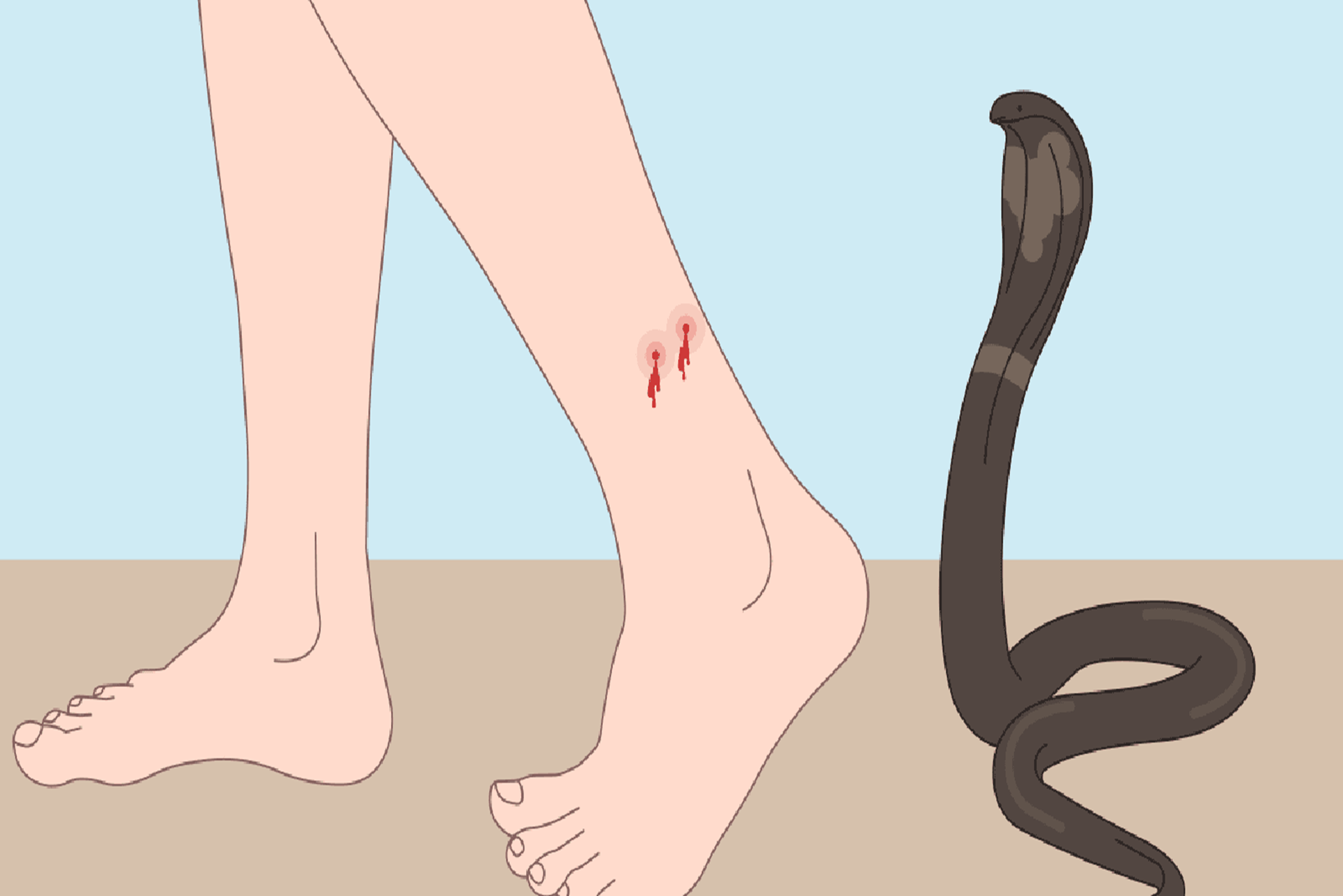
Overview:
Poisoning and snake bites are medical emergencies that require immediate treatment. Poisoning can occur from the ingestion, inhalation, or absorption of toxic substances, while snake bites involve venomous snake species injecting venom into the body. Both conditions can cause severe damage to the body, affecting organs and systems, and can be life-threatening without prompt medical intervention.
Causes:
Poisoning can result from consuming poisonous chemicals (e.g., household cleaners, pesticides), food toxins, drugs, or alcohol. Snake bites are caused by venomous snakes, which inject venom into the bloodstream through their fangs, leading to various toxic effects depending on the species. Common venomous snakes include cobras, vipers, and pit vipers.
Symptoms:
Symptoms of poisoning can vary widely depending on the substance involved but may include nausea, vomiting, dizziness, confusion, difficulty breathing, and seizures. Snake bites typically cause localized pain, swelling, redness, and bruising. Severe cases may lead to systemic symptoms such as dizziness, weakness, paralysis, bleeding, and organ failure.
Treatment:
For poisoning, immediate treatment involves identifying the toxin and providing supportive care, which may include activated charcoal, intravenous fluids, and medications to counteract the poison. In severe cases, hospitalization and specialized treatments such as antidotes or dialysis may be necessary. For snake bites, the patient should be immobilized, kept calm, and taken to a hospital immediately for antivenom treatment. The snake species and venom type determine the type of antivenom required. Both conditions require immediate medical attention to prevent long-term complications or death.
Precautions:
To prevent poisoning, it’s essential to safely store chemicals, medications, and hazardous materials out of reach of children and pets. Avoid ingesting unfamiliar substances and always follow safety guidelines for handling chemicals. For snake bites, wear protective clothing in areas known for venomous snakes and remain cautious when hiking or working in such environments. Avoid provoking snakes.
Prevention:
Preventing poisoning involves educating individuals on the risks of toxic substances and practicing safe storage and handling. To reduce the risk of snake bites, avoid walking barefoot in areas with snakes, use snake repellents when necessary, and be cautious around rocks, tall grass, and other snake habitats.
For expert care in treating poisoning and snake bites, visit The KDM Hospital in Lucknow, offering ambulance services, budget-friendly care, Ayushman card acceptance, and 24/7 doctor availability.
